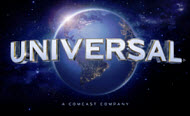Mask
Reviewed by: Brett Willis
CONTRIBUTOR
| Moral Rating: | Very Offensive |
| Moviemaking Quality: |
|
| Primary Audience: | Teens Adults |
| Genre: | Docudrama |
| Length: | 2 hr. |
| Year of Release: | 1985 |
| USA Release: |
March 22, 1985 |

| Featuring |
|---|
| Cher, Sam Elliott, Eric Stoltz, Estelle Getty, Richard A. Dysart, Laura Dern, Micole Mercurio |
| Director |
|
Peter Bogdanovich |
| Producer |
|
Martin Starger |
| Distributor |
This film is based on a true story and carries an anti-prejudice message which would be worthwhile for both adults and children; unfortunately, the screenplay is loaded with graphic language and offensive content.
Rocky Dennis (Eric Stoltz) is a teenager with “look-of-the-lion” syndrome, a recessive genetic disease the causes his skull to continue to grow in thickness both inward and outward. Eventually, the pressure on his brain will kill him. He’s a top student and a surprisingly upbeat and responsible kid. Because of his appearance, he’s discriminated against by teachers, fellow students and almost everyone else. He, his mother Rusty (Cher) and her part-time boyfriend Gar (Sam Elliott) are part of a motorcycle gang; and Rocky finds acceptance only within the gang and from a few hard-won friends. His mother is a druggie and sleeps with most any guy she can get her hands on; in some ways he’s the parent, and she’s the child. Rocky likes the rock “n” roll and the Harleys, but hates the drugs and the casual sex. Near the end of the film, Rocky works as a counselor at a camp for the blind and finds romance with one of the campers (Laura Dern).
Warnings: Profanity is extreme for a PG-13, including at least two uses of “F*” and constant vulgar language from most of the main characters. Within the gang there’s a lot of visible drug use and casual “romance” plus a little friendly violence. No on-screen nudity (just a back view of Rusty changing her top, and some scenes of Rocky in his underwear), but a lot of implied sexual activity. Throughout the film, a fairly steady stream of old-style rock music sets the mood. When Rocky begins to despair that he’ll never get a girl, his mother brings him home a prostitute; of course he wasn’t talking about sex, especially paid sex, so he doesn’t accept.
As a former ’60s hippie who once had to help take a girl to the free clinic when she overdosed and miscarried, I have no attraction to the lifestyle shown in this film; I already know that it’s a way of death, while Jesus is THE WAY to life. My concern is that it might appear exciting to a teenager or to anyone who’s led a sheltered existence. It’s portrayed negatively, but perhaps not negatively enough.
Positives: The central message of looking beyond a person’s outward appearance and treating everyone decently makes this film worth watching, if you can stand the negatives mentioned above. The real Rusty was an advisor to the film (she eventually kicked the drug habit, and certainly didn’t sugar-coat the portrayal of herself as she once was); and the makeup artists effectively recreated the look of the real Rocky, except that they couldn’t reposition the eyes to turn outward.
If you get into this film you’ll cry, you’ll get angry at how insensitive some people can be, and you may even remember a time when you acted the same way. I once heard a Teacher of the Year award winner tell how he tried to avoid a woman with a growth on her face, until Jesus spoke to his heart: “Your love for Me is measured by your love for the person you like the least.”




However, the writers inserted an occult image into this part of the film. Rocky and Diana are resting, during a break from horseback riding, when someone gives them an apple. Diana cuts it horizontally, feels the pentagram (five-pointed star) formed by the seed chambers, shows it to Rocky and tells him that it’s “lucky.” Then they each eat one half of the apple. So what?
There are places in the world where couples go through this apple ritual just before engaging in tantric (magic) sex. The scene is done too perfectly to be coincidence. And by having Rocky and Diana under a tree, the writers are probably also suggesting the Garden of Eden.
Some occult groups teach that Eve had sex with the serpent and was magically enlightened by it; then had sex with Adam, which also enlightened him. The apple symbolically represents that belief. The fact that many people think of the literal fruit in Genesis 3 as an apple, although the Bible doesn’t give the fruit a name, shows how deeply some weird beliefs have spread underground in our culture.
Why would someone bother to bury this imagery in a film? Because if a viewer later hears a teaching that he’s previously been exposed to in symbols, there’s a groundwork of familiarity: “Yeah, I’ve heard something like that before.”
Usually we’re unaware of symbolic themes in films; that makes them more powerful. When we can’t consciously recognize something as objectionable, we can’t filter it out.